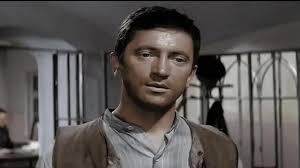Be Polish. Live at the crossroads of three major continental zones. Incorporates traditions from Arabic, Latin, and Nordic languages into a unique synthesis. Everybody hates it. Nobody wants to speak it.
Be English. Live at the ass end of nowhere, and become a haven for vagrants, dissidents, pirates, and exiles. Incorporate traditions from Latin, Germanic, and Frankish languages into a unique synthesis. Everyone hates it. Nobody wants to speak it. Become worlds most spoken language anyway.
Moral of the story. People will have to learn your shitty incoherent language if you build a big enough navy.
Or invent the internet.
glances at who builds all the processors and hardware components
Time to start learning Chinese and/or Korean.
deleted by creator
The trillion dollar piece of one of a kind manufacturing equipment where I get my raw goods.
The French in the '90s had Daft Punk and the Minitel.
Après moi je dis ça je ne dis rien.
Où est passé du-coup?
Be Lithuanian. Get culturally dominated by Poland. Refuse to speak Polish anyway. Refuse influence from any language. Remove loan words, replace them with newly made Baltic sounding ones. End up impossible to learn.
Thank Teddy Roosevelt and Queen Victoria for that
If ya dont you will be beaten by Roosevelt’s “big stick”.
Hungarian and Finnish have entered the chat
Iceland: Hlær að öllum
Lithuanian: Palaikyk mano alų.
Getting a Haer’Dalis vibe
The orthography is OK. It spams ⟨z⟩ for the same reason why Romance and Germanic languages spam ⟨h⟩ - too few letters, too many sounds, got to use digraphs.
The phonetic and phonemic part is like your typical European language. As in, “WE NEED A NEW SOUND! OTHERWISE WE CAN’T REPRESENT THE KITCHEN SINK DRIPPING!!!”
The morphology is complicated, but the alternative is to make the syntax become a hellish mess. Like Mandarin or English. Language is complicated, no matter which one.
the alternative is to make the syntax become a hellish mess
The alternative is Czech.
the alternative is to make the syntax become a hellish mess. Like Mandarin or English.
Now hang on just a second. English is fine. You just have to memorize or correctly guess the etymology of whatever word it is you’re trying to spell/pronounce in order to get … oh, okay, I think I see the problem now.
Ah, what you’re saying is spelling. Syntax is word order, obligatory words, stuff like this. English syntax is a maze, or how programmers would call it, spaghetti code.
For example, here’s how to ask a yes/no question in…
- Latin - attach -ne after the relevant word. (Note: Latin has no word for “yes”, but still has this sort of question.)
- Spanish - why bother? Intonation is enough.
- Polish - start the sentence with “czy”.
- German - shift the verb to the start of the sentence (first position).
- English - if the verb belongs to a small list of exceptions, do it as in German. However most verbs refuse this movement to the first position, so for those you need to spawn a dummy support “do”, then let it steal the conjugation from the leftmost verb, and then shift that “do” instead. Noting that semantic “do” also refuses the movement, so it still requires a support “do”, yielding questions like “did you do this?”
Then there’s the adjective order. In Latin for example it’s just a “…near the noun? Whatever, just don’t be ambiguous.” Polish is probably like Latin in this. English though? Quantity or number, then quality or opinion, then size, then age, then shape, then colour, then material or place of origin, then purpose or qualifier, then the noun. And don’t you dare to switch them - “your famous blue raincoat” is a-OK, but *“your blue famous raincoat” makes you sound like a maniac.
English syntax hard?
There’s a lot of issues with English. Most of them are for using loanwords without phonetically changing how they’re spoken in the English alphabet. Then people wonder why they’re spelled like Ledoux and sound like Lehdoo.
Romance. Romance languages are the fucking reason you word slurring tongue twats.
But hey, at least we’re not Turkik.
English syntax hard?
Yes, it is. It has 9001 rules for the allowed order of the words, 350 for each, and you have lots of those small words with grammatical purpose that don’t really convey anything, but must be there otherwise your sentence sounds broken. Refer to my examples with yes/no questions and *blue famous raincoat (instead of “famous blue raincoat”).
That happens because any language is complex, there’s no way around. You can dump that complexity in the word order, like English does, or dump it in different word forms, like Polish; but you won’t be able to get rid of it.
There’s a lot of issues with English. Most of them are for using loanwords without phonetically changing how they’re spoken in the English alphabet.
That’s something else, the spelling. It’s a fair point when it comes to contrast with Polish though - sure, the ⟨z⟩ might look odd, but it is consistent, most of the time you can correctly predict how you’re supposed to pronounce a word in Polish.
Just come up with new letters, Lithuanian has 9 (ą, ę, ė, į, ų, ū, č, š, ž) extra letters. If a small language can do it, so can English.
It’s actually easier to come up with a decent orthography for a language with a small number of speakers, as it depends on getting “everyone” (more like “enough people so the opposers can be safely ignored”) on the same page. Doubly true when it’s a language associated with a single government, because once you get 2+ governments into the bag they tend to force distinctions where there’s none.
For English there’s an additional issue, the lack of any sort of regulating body like the VLKK. The natives also seem to have a weird pride against diacritics (kind of funny as English spams apostrophes, but OK, not going to judge it).
I mean, yes and no.
You are assuming that Lithuanian language became formalised when Lithuania was united under one government. Instead, most of language formalisation happened between 1880s and 1920s, when Lithuanian speaking population was actually divided between Prussian and Tzarist Russian empires. While most of the people lived in Tzarist Russia, writing in Lithuanian in Latin script was forbidden there.
Instead, books in Latin script were printed in Prussia and distributed in Russia illegally. A handful of people like J. Basanavičius and V. Kudirka ended up in charge of printing most of those books and it made it easy to set language standards. Achieving such a monopoly with a bigger language would be much more difficult.
That is also why formal Lithuanian is based on one ethnic dialect that was spoken in Prussia.
I’m not assuming when the formalisation happened. I’m saying that it’s harder to get everyone to agree on how the orthography is supposed to be, when 2+ governments and populations associated with them are forcing distinctions even when there’s none.
You’re right that it is not impossible however, and your historical example shows it. Historically Lithuanian is the exception that proves the rule because
- the local population didn’t see themselves as Prussians or Russians, but as Lithuanians, so there was a community even across borders; and
- neither Prussia nor Imperial Russia were backing specific varieties of Lithuanian. They were backing German and Russian instead.
And nowadays it’s simply not an exception. (I was referring mostly to modern times.)
Instead, books in Latin script were printed in Prussia and distributed in Russia illegally. A handful of people like J. Basanavičius and V. Kudirka ended up in charge of printing most of those books and it made it easy to set language standards. Achieving such a monopoly with a bigger language would be much more difficult.
That’s a great tidbit of info, and it’s related to what I’m saying: those Lithuanian speakers in Russia only accepted the books as suitable for their language, even if they were printed in Prussia, because they didn’t see it as coming from “those other guys”.
[Thank you for the info, by the way! Across the whole comment, not just that paragraph.]
You’re welcome.
If you want to read more about the history of Lithuania and surrounding countries and their nation formation, a great start would be Timothy Snyder’s book “The Reconstruction of Nations”, he’s the most popular historian of the region who is not from the region.
Germanic languages spam ⟨h⟩
? English? German has way less h. Ok, more ch, but that’s for different reasons, same reasons as ck.
I was kind of painting a broad stroke, but you’re right - German uses mostly ⟨ch⟩ and ⟨sch⟩. Should’ve said “English” alone.
We used to have a server at my university which a polish guy set up. It received the name brzeczyszczykiewich. We decided that the server was secure enough by name, so we only put a trivial password on it for remote connection.
Bezwzględny Grzegorz Brzęczyszczykiewicz wyruszył ze Szczebrzeszyna przez Szymankowszczyznę do Pszczyny. I choć nieraz zalewała go żółć, niepomny następstw znalazł ostatecznie szczęście w źdźble trawy.
EDIT: copy/pasted from somewhere, this looks incredible to pronounce! The only polish word I know is kurwa, and Zubrowka.
The only polish word I know is kurwa, and Zubrowka.
You’re right, you know just one word in Polish, because it’s Żubrówka you filthy peasant.
😆
It may look hard, but those are more of a spelling nightmare than pronounciation ones
Hard ones to pronounce are for example: “Chrząszcz brzmi w trzczcinie w szczebrzeszynie” or “stół z powyłamywanymi nogami”
Or “wyrewolwerowany rewolwer”
My classmates and I played around with that one a lot back in primary school – I think I once managed to say “wyrewolwerowany rewolwerowiec wyrewolwerowuje wyrewolwerowany rewolwer” without skipping a beat.
laughs in Welsh
Can’t say I’ve ever been to Llanfairpwllgwyngyllgogerychwyrndrobwllllantysiliogogogoch.
Kinda weird to isolate Polish when Hungarian, Finnish and Basque are actually all their own distinct language families.
Polish actually isn’t in a distinct language family and shares a lot with other western Slavic languages like Czech, and Slavic languages in general.
Maybe it’s because it was in the same language group as those others that polish got singled out. People who speak an Indo European language will expect to be lost when first trying to learn a language outside of the group, but might not expect to be so confuddled from a related language. Expectations basically.
Yeah, my first thought was, isn’t Hungarian far more complex/different. Also, Icelandic is meant to be very difficult to learn too!
Polish is a Slavic language written out using Latin letters.
Would be so much shorter with a щ
Removed by mod
deleted by creator
chwerthin yn Gymraeg
Yeah, Welsh is even more special …
deleted by creator
I wonder if we had ž etc like Czechs would it make it easier for foreigners to read
Is ź and ż not enough? =D
Fun fact: The Czech adopted š, č and ž to look less German. The Lithuanians adopted it to look less Polish.
Based Jan Hus. Sparking religious wars and linguistic reforms.
That happened hundreds of years after Hus.
That’s actually a fun fact :D. I do wish Polish would adopt this signs though, just so we wouldn’t have these digraphs
It would certainly make Polish easier to read for Czechs. Not sure about other foreigners, šžčřě might be just as alien.
I’m learning Polish, and spelling (rz dz sz cz ł and ą ę ż ś) is all fine for me-- the thing I struggle with is the grammatical cases. The fact that the ending of everything changes is what has caused me to give up twice 🥺
I will pick it up again, but I sucked at the Masculine/Feminine thing with French, and this is a lot more difficult.
CAT:
- KOT
- KOTA
- KOTU
- KOTEM
- KOCIE <— (This is where I quit: Locative case took the T away WTF?!)
Przepraszam moja drogi!!
Looks weired but a sound of C and T has to be somehow connected, at least it feels like they are to me. Based on my experience, sound of Polish Ć and Czech Ť are transitional between Polish/Czech T/C. Proper linguist might put some more light on it than just my speculation.
Our C is reffered in IPA as joined “TS” sound, so there is definitely some merit to that
Polish C is also described as /t͡s/ (e.g. co /t͡sɔ/). According to wiki both are dental and voiceless although one is plosive and the other affricate. As I’ve read their descriptions on wiki, they made a lot of sense - /t͡s/ starts with a blockade of airway (just as /t/) but the air is released slightly differently thus making the difference in sound produced.
The T turning into C is called somehow, I don’t remember how, but it’s used quite often. For example, “expensive” and “more expensive” would be “drogo” and “drożej”. I think there were even some tables for all the transformations, but I might misremember things
Took 2 years of Polish at University. I spent more time on that one class than all my other classes combined… And I went to school for Education.
And when polish gets drunk, I always laugh because it changes a bit. They said its imposible to read polish subtitle on films, that is why they have a monoton voice reading out loud. They were the naughtiest in babylon 🤣
That’s actually not that bad. Definitely better than dubbing. The voiceover lets You understand everything said, but You can focus on the picture unlike with subtitles. And the monotone voice over the dialogue lets You hear the emotions of the actors.
Idk if you’ve seen one of these dubs/voice overs, but usually the underlying is so quite, it is closer to being muted than actually understandable
I’m Polish, so I’ve been seeing them all my life. And I have to disagree, I’ve never had a problem with hearing the actors.
Oh this is really cool. I didn’t know that! So foreign films brought to Poland are spoken over with a Polish translator, just like you’d have at the UN? That way you can hear the original actors and the translated dialogue in Polish?
How does this work for trying to learn a new language? I have heard of many people learning English by watching English movies and TV shows with subtitles in their own language. This allows them to listen to English and slowly start to pick up English words while still being able to understand what’s happening due to the subtitles. I myself am learning Chinese and I occasionally watch cooking videos in Chinese with English subtitles and find myself gradually picking up the Chinese words as I hear them.
I think this technique probably works best with shows and movies written for children, as those have much simpler dialogue to begin with.
This actually doesn’t help with understanding English. You will pick up a few words, but You can’t listen to two people talk at the same time. You can only pick up how they act, but not what they say. I learned English watching cartoons without any translation when I was 7.

Grzegorz Brzęczyszczykiewicz z Chrząszczyżewoszyce powiat Łękołody.
*cries at Greek















